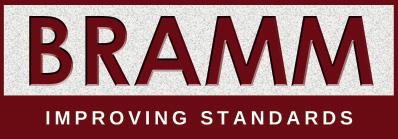
8 minute read
Journey through the pandemic
my journey through the pandemic
A lot of people have asked me how I was coping with the lockdown and my response has been what lockdown.
Advertisement
The entire funeral sector has been in the forefront and sadly this has really not been recognised. We fully appreciate the NHS being recognised but at the same time, in my view the government should have acknowledged the critical role played by our sector. If we had not played our part effectively, you would have had much longer delays in burials, critical storage issues and families being deprived of burials taking place in accordance with their beliefs and wishes.
When the Covid 19 bill was presented, I remember there was so much alarm as councils were given the authority in legislation to dispose of the deceased in whatever manner they deemed fit. This raised huge concerns in faith and non-faith communities. There were headlines that people will be buried or cremated against their wishes and this resulted in absolute panic within communities, none more so than the Muslim Community.
This became even more of an issue when there were press reports that suggested bodies were being piled up high in mortuaries or in make shift storage areas in mosques. This painted a very bleak picture for the community.
For our community we had to come up with a strategy to deal with our faith requirements under very difficult circumstances.
We had to consider the following: • Quick burials • Ritual washing • Storage facilities • Family participation • Final prayer • PPE
We produced guidance for our community immediately in terms of what to do with the preparation of the deceased taking into account the guidance given by PHE. We quickly realised that burials within 24hours was not going to happen. Storage facilities would be an issue and above all participation from families would be difficult. We had to manage the expectations of families that they will not be able to meet the strict requirements of our faith fully. However, this was a pandemic and our scholars had given rulings that allowed us the flexibility that was required.
What challenges did we face?
24 hours wherever possible. This was not going to be the case for a number of reasons (delays in paperwork, collection and burial space).
Storage – Most of the hospital and public mortuaries were full and the additional storage spaces were either not in place or locations which were very far from the place of death.
Preparation of the deceased – It is a fundamental requirement to prepare the body before burial and the very mixed messages being received at that time both from PHE and the medical profession did not help.
Final Prayer – This is an obligation. Without this the burial cannot take place.
Quick burials – The registrars and most of the bereavement offices were very good but because of the sheer volumes, there were delays. At the height of the pandemic the delay in burial from date of death was 7 days but that was for a very brief period of time. Cemeteries were at first very slow to react in terms of increasing their capacity. We, at Gardens of Peace, being the largest dedicated Muslim Cemetery in the country, stepped up to the challenge to ensure that burials could take place as quickly as possible. Under normal circumstances we would do around 3 – 4 burials a day. We started to increase this to 8 burials a day to ensure that the delay in burial was kept to a minimum. This was not enough and at the height for 2 weeks we increased our capacity to 20 burials a day. This helped to reduce the burial waiting times to a minimum and the most families had to wait was for 3 days. It was our desire to ensure that every family was given an opportunity to attend the funeral and witness the burial. We wanted them to have closure. At one stage we had contemplated mass burials, but fortunately this was not necessary and we had taken a conscious decision that we would only resort to that if the death figures became unmanageable. We had geared our resources to undertake if necessary, 30 burials a day. We hired additional diggers and equipment and suffice to say that we had no help from the council except providing us with numbers for contractors who could assist us with the digging at a cost.
Preparation of the deceased – This was a very difficult area. We had people in the hospital saying that you should not touch a Covid 19 death; it should remain in a sealed body bag and immediately needed to be taken for burial. We worked tirelessly with PHE and other
experts in this field and determined that we could actually wash the body as long as sufficient safety precautions were taken and the appropriate PPE was administered. The default position from some of our scholars, as well as scholars from others faiths, were that, although it a requirement to wash, under these circumstances, this requirement could be set aside.
However, I personally did not feel comfortable with this although it was a perfectly reasonable ruling under the unprecedented circumstances. I took the view that if it was my father or my mother, would I deprive them of this very fundamental requirement when it could be performed with the necessary precautions. I therefore, personally undertook the first Covid 19 wash with the help of my two staff members all wearing appropriate PPE. After having done about 10, we felt that this could be done safely and produced a guidance nationally for our community which was adopted by the Muslim community in the country. We were responsible enough to place a caveat that if anyone felt unsafe or are not confident or did not have the appropriate PPE, they should not undertake this task.
In the end I carried out personally over 100 such washes over the 3 month period and two weeks ago I had both the normal as well as the anti-body test done and thankfully both were negative.
What this pandemic did do for our community was that the younger generation of volunteers stepped up to help with this process as people over the age of 60 were specifically excluded from performing this function. Traditionally in both the Muslim and Jewish community elderly people carry out this important function.
From the 13th March till the end of June we carried out 360 Covid 19 burials. In a month we would normally expect 85 burials however during this period the total number of burials we handled was approaching 700.
Attending the funeral and burials – This was the most difficult aspect of the whole process. We had to restrict to maximum of 5 people from the family to attend. This was really difficult for the families as they had to choose the 5 people. However, at the same time, they were grateful that they could attend and perform the final prayer, which normally is conducted in a mosque but now was being offered at the cemetery before the interment took place and the family could witness the actual burial, although they could not really participate due to the safety reasons.
Families missed out on seeing their loved ones at the hospital, could not participate in the wash and preparations and some could not even attend the burial as they were in isolation or had symptoms. As the cemetery was closed for visitors for much of the period, this had a serious impact on families.
I still recall two incidents which I cannot forget. One was where we had to bury a doctor who was in the front line (contracting Covid 19) and since her husband (a doctor as well) and her child were exposed to her whilst she was in hospital could not attend the burial. This was very traumatic and even sadder was the fact that this family had no immediate relatives in this country and only close work colleagues attended. However, with the aid of technology we were able to live stream the burial to the husband.
The second was a mother and daughter both contracting the virus and dying with a week of each other. Fortunately, we were able to bury them near each other. Can you imagine what the families were going through?
Post the pandemic our community, like every other community will need bereavement and mental health support.
We are ready, but we pray that it does not happen, for the second wave. The main lesson we have learned is to remain calm, focussed, and ensure the safety of your staff and people attending the burials. The government guidelines whilst helpful should not be the only consideration. People should do their own risk assessments as every place and area is different.
We should learn lessons in terms of there being adequate PPE for our sector, clear guidance from the government and more importantly consistency throughout all the services so that there is only one message. Now there are statistics available to identify areas which are more vulnerable, as well as better protection for the BAME community who are more prone to the virus.
One aspect which has been a blessing throughout this pandemic is the death registration process. This has worked brilliantly.
My thanks to all to the staff at the registration offices, the coroners and their team, bereavement and mortuary staff in hospitals and all the frontline staff who worked tirelessly to ensure that the process was as smooth as possible with the minimum of delays.
Without the support from our community and all the volunteers, we would not have been able to cope.








